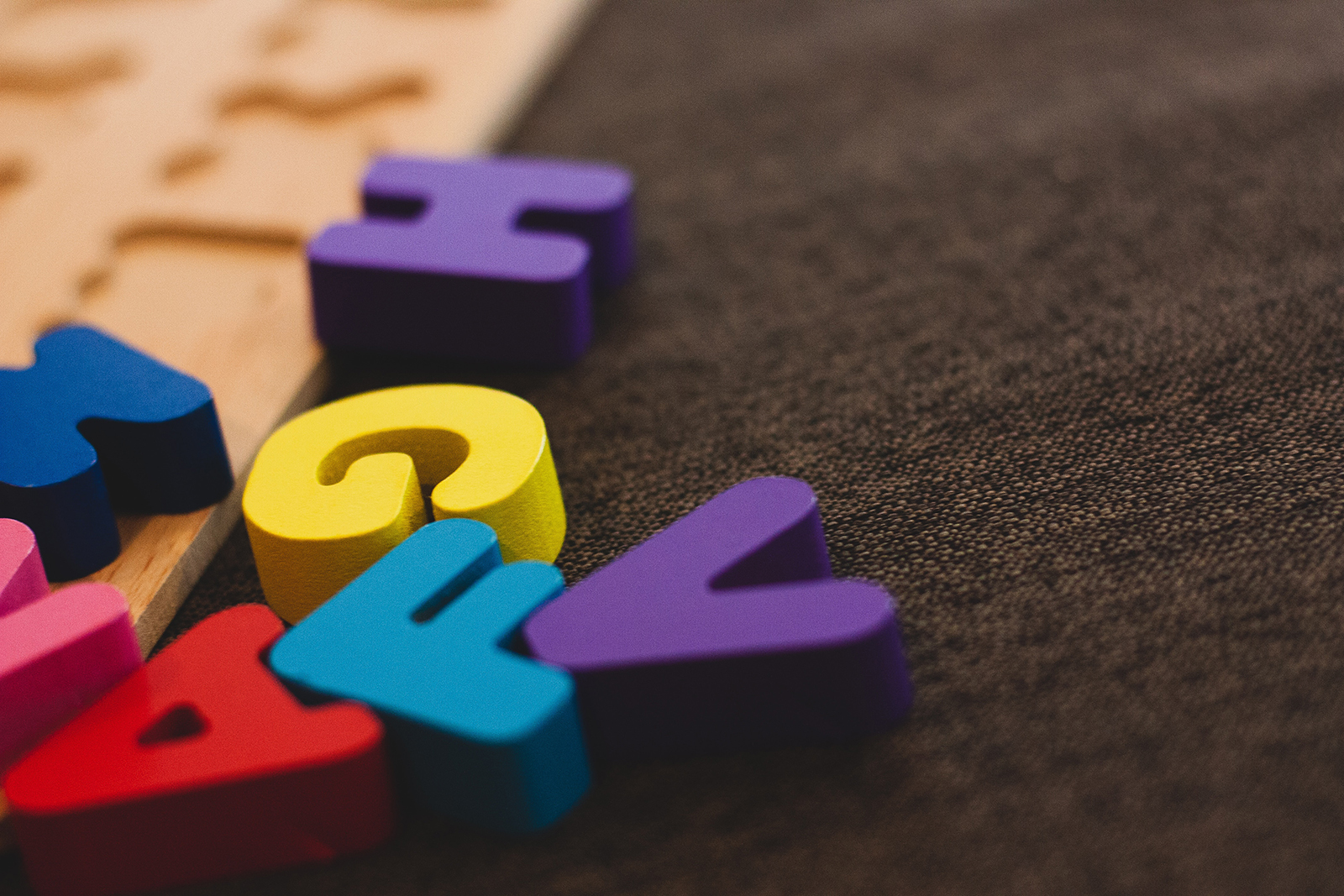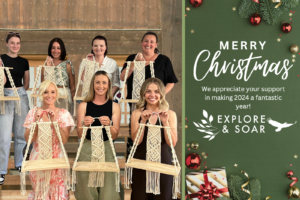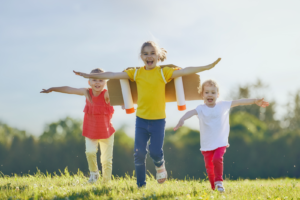
SCHOOL READINESS
Another month gone! That means that 2022 is fast approaching us. And with a new year, comes a new group of children and their families making the scary and exciting transition into ‘big school!’
Transitioning into the primary school setting can be a tricky time for lots of children. It is a very exciting period, filled with new friends, new teachers and new activities. But it can also be a stressful time, as there is a lot of change in our routines, structures and expectations within every day. It is important that we support our children to make a happy, supported and successful transition into ‘big school’.
School readiness skills are about more than just reading, writing and maths. It is easy to get caught up on these details, wanting our kids to be proficient in basic handwriting, counting, or even being able to identify letters and words. It is however, really important to look at the whole picture and holistically support our children to build all of the smaller less recognised skills that will support them in achieving success in Kindergarten.
School readiness refers to the foundational skills that support a child’s body, mind and wellbeing as they transition into the primary school environment.
The first thing to remember when starting the transition to school, is that your child is going to school to continue to learn and develop their skills such as reading, writing and maths. These are not skills that they are expected to be perfect at on their first day. However, there are lots of activities and tasks that children will be expected to independently perform when they start Kindergarten. These range from self-care skills, to fine and gross motor skills, and even social and play skills.
Let’s start by thinking about the self-care skills that a child needs to be able to independently complete within an average school day. They will need to be able to dress themselves in their school uniform at the start of the day, undress/dress to go to the bathroom at school, and undress at the end of the school day. School uniforms often have buttons, zips, shoelaces and even ties depending on the school you are attending. Children will be expected to be able to go to the toilet independently without supervision during the school day. At lunch and recess breaks children will be expected to open and close their own lunch boxes, unwrap snacks and packaging such as chip packets, zip-lock bags, drink bottles and lids.
Developing a child’s fine motor skills is another important step in preparing them for success in school. For the transition to school, focus on building basic foundational skills such as being able to open and close a school bag. Teacher’s may expect that children can hold a pencil and use it to write their own name, draw a person, form pre-writing shapes (vertical line, horizontal line, circle, x, diagonal line), and colour in an up to down and circular motion. Other skills that will be explored are holding and using scissors to cut paper and gluing for arts and craft.
Another important skill set to support the transition to school, will be a child’s use of gross motor skills. I’m not talking about being able to play a full game of team sports such as soccer or netball but it is important that our kids are able to safely play on playground equipment and participate in common childhood games such as tips, hopscotch, hide and seek or bullrush. Age-appropriate gross motor skills for children transitioning to school include running, jumping with two feet, hopping on one foot, skipping and balancing. It is also important for children to have developed core strength and postural stability for use within the classroom so that they are able to sit cross legged on the mat for floor time, as well as sit in their chair at the desk for extended periods of time while they complete activities.
Children learn and develop the majority of their foundational skills through ‘play’. Therefore, it is so important that our children transitioning into the school environment have developed social and play skills such as shared attention and engagement with peers. Children aged 4 years and older are expected to engage in ‘cooperative play’. This means that a child will play with other children, showing interest in both toys or the activity, as well as the other children or child they are playing with. At this age it is also expected that children will engage in pretend play themes and making use of their imagination within play. Further social skills that will be expected in the school environment include sharing, turn-taking, patience and whole body listening skills.
A skill that you might not have considered yet, but is imperative for success in the school environment is a child’s emotional regulation skills. This refers to a child’s ability to find and maintain the level of arousal in which they are able to best engage in the world around them. Think about whether your child can maintain and adapt their own emotions, behaviour and arousal appropriately to suit the activity and situation at hand. For example, if a child is playing a new exciting game, do they get over-excited and silly to the point that they are no longer able to engage in the game? Or, do they become angry or upset because the activity is too challenging for them and they don’t know how to ask for help? Additionally, can the child recover from heightened emotions such as anger or frustration, in an appropriate manner and time frame> All of these situations refer to emotional regulation skills and need to be developed for a successful transition to school.
Lastly, let’s talk about our child’s ability to cope with and manage transitions themselves. The transition to school is a big one, but along with this there are many other smaller transitions to consider. These transitions begin early in the day from waking up and getting ready for school, to leaving home for school, being in the playground with friends, moving into the classroom for morning period, and so on and so forth throughout the day with lunch break, home time, ect. School days are very routine and structured, and children are expected to learn and follow these routines. Challenges that come with these transitions can be as simple as having to go to the toilet at a set time, rather than just going whenever you need to at home; only having a certain amount of time to eat your lunch; or moving back into the classroom appropriately after an exciting play break.
Some children may still be having difficulties achieving success or independence in any one or group of these skills. This increases their risk of falling behind their peers and having to play ‘catch up’ or requiring additional support to be put into place to achieve success. Therefore, it is immensely important that we support these children by actively facilitating the necessary skills for school readiness throughout pre-school..
If you’d like to help your child develop their school readiness skills, here are some ideas that you can do at home together. Often the repetition of everyday activities is a simple yet effective helping hand! Practice is key!
- Encourage your child to open their own snacks and containers.
- Encourage your child to start drinking out of a water bottle.
- Encourage your child to be responsible for their own items, packing them, and then packing them away.
- Follow a morning and evening routine to support your child’s ability to understand and follow structures. This can be supported by the use of a visual schedule of ordered pictures of each step that needs to be performed.
- Support transitions within the home with the use of a visual and/or auditory timer to mimic the bell system used within schools and support your child’s understanding of time, space and transitions.
- Practice with your child getting dressed and undressed with their school uniform once you have bought it.
- Practice and role-play the drop-off and pick-up routine ahead of time. Also discuss and role-play changes in routine and unexpected events i.e., somebody else picking them up.
- Engage your child in arts and craft activities at home. Use pencils, crayons, paints, string and beads, scissors and glue to create masterpieces together.
- Encourage your child to participate in colouring in activities, tic-tac, toe, mazes, colouring in, dot to dots, etc.
- Engage your child in card and board games that will teach them turn taking, sharing, and problem solving skills.
- Play and create obstacle courses within the home to practice your child’s movement and gross motor skills. Include jumping, balancing and hopping.
- Teach and expose your child to common group games such as tips, hide and seek, bullrush etc.
- Facilitate safe social encounters with similar aged children for your child to practice play and social skills with.
- Support your child to identify their emotions and explore and practice different ways to calm their body when in a heightened state of arousal. For example, practice deep breathing, drinking cold water, movement breaks or other tricks that work for them as an individual.
As Occupational Therapists, we also facilitate the development of all of the aforementioned skills through our one-on-one therapy intervention sessions, home programming and our school holiday ‘BIG School STARS’ transition to school group which Explore and Soar run in the January School Holidays. If you have concerns about any of the skills discussed in this post, just ask your therapist and they can help you best support your child to achieve the success they deserve at big school. We also have a transition to school activity handout on our website, click the link here to view and download it, to help with all the activities ahead over the next couple of months.
By supporting our children to build these foundational skills, we are giving them the tools and skills that they need to not only achieve success at big school, but to have the best time while doing it!
ORIGINALLY PUBLISHED NOVEMBER 3, 2021
Latest Posts
- Embracing Transitions and Growth: A Year of Learning and Achievement

- The Power of Play: Supporting Transitions in Your Child’s Development

- OT Week: Celebrating 80 Years of Connection – 21st to 27th October (Week 3, Term 4)

- Nurturing Early Sensory Development: The Critical Role of Suck-Swallow-Breathe Synchrony in Infants

- Empowerment Through Adolescence: Navigating Puberty with Confidence and Support


Leave a Reply